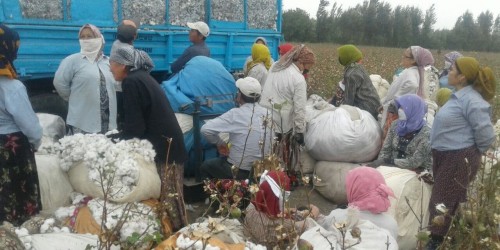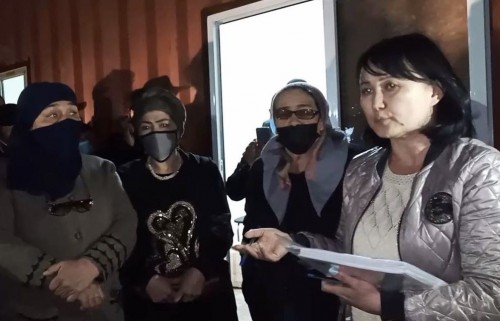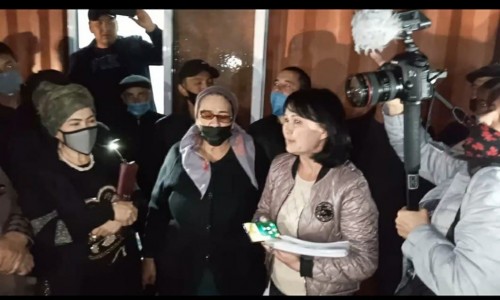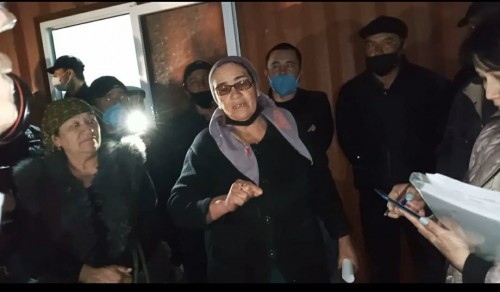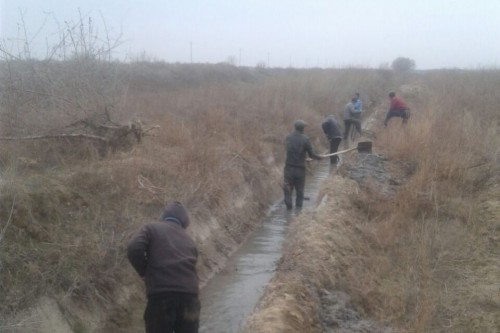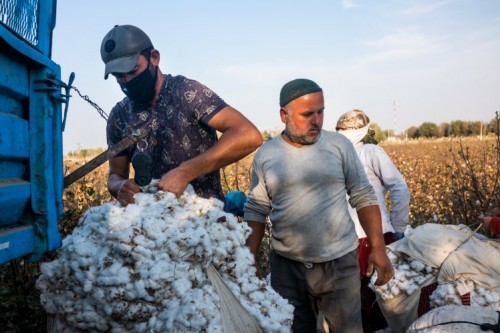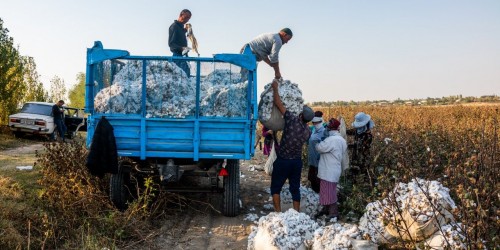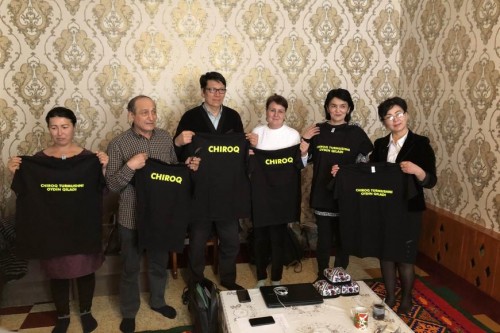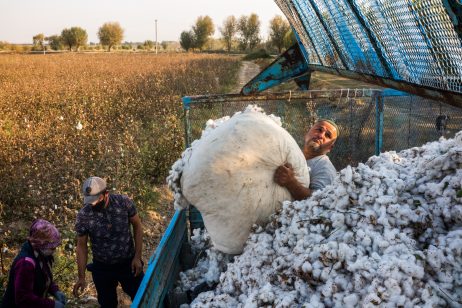Countries
Solidarity campaigns
13 August 2024
Georgia: Support striking workers at Evolution Gaming
5 June 2023
Georgia: Justice for Wolt couriers
10 May 2023
Belarus: Trade union activity is not extremism!
2 November 2019
Kazakhstan: Trade unionist Erlan Baltabay imprisoned - again!
19 November 2018
Kazakhstan: Stop repression and physical attacks on leaders of independent unions; hands off Larisa Kharkova, Erlan Baltabai and Dmitriy Senyavskiy
18 April 2018
MALOKHAT STILL NEEDS YOUR HELP
News
05 April, 2021 / uzbekistan
UZBEKISTAN COTTON HARVEST 2020: HIGHLIGHTS – VIDEO
Despite significant progress on the eradication of forced labor in Uzbekistan’s cotton sector, new challenges have come to light since the privatization process began. Hundreds of thousands of hectares of farmland have now been transferred to private operators (clusters) leaving many farming families without work and in poverty. Because only one cluster operates per district, farmers who have retained their land are now trapped in contracts to deliver cotton to the cluster in their district, leaving them without the power to negotiate favorable terms. Instead of the state, de facto private monopolies have emerged that control entire districts.
27 March, 2021 / uzbekistan
JOINT STATEMENT REGARDING THE ESTABLISHMENT OF AN INDEPENDENT TRADE UNION IN UZBEKISTAN
On March 19, 2021, over 200 employees of Indorama Agro in the Syrdarya region of Uzbekistan held a meeting to establish the independent trade union, “Xalq Birligi” (People’s Unity), the first of its kind in the country. The documents required for formal registration of the union will be filed with the Ministry of Justice in the coming days. Xalq Birligi will be open to any employees of Indorama Agro who wish to join.
24 March, 2021 / uzbekistan
Harassment, Bullying, and Violence against Women in Uzbekistan.
The issues of harassment, bullying, and violence against women in Uzbekistan are being covered with greater frequency in the national mass media. Lately, events involving a Polish lady reporter who was going through the process of extending her accreditation and faced harassment became a subject of a broad discussion. And while the accreditation issue was eventually dealt with in a most expeditious manner, the allegations of harassment were never investigated and the perpetrator was never brought to justice.
24 March, 2021 / uzbekistan
Cotton workers form the first independent trade union in Uzbekistan
The first independent and democratic trade union organization has been formed in Uzbekistan. On March 19, 2021, 335 workers from the Indorama cotton plantations founded “Xalq Birligi” (Peoples’ Unity) in response to low wages and deteriorating working conditions in the transnational company, Indorama.
23 March, 2021 / uzbekistan
Employees of Indorama Agro LLC established an independent union - March 19, 2021
On March 19, 2021, over 200 employees of Indorama Agro LLC gathered in Sardoba in Syrdarya region to hold a founding meeting to establish an independent trade union. The employees were forced to hold the meeting outside as they were refused entry to a previously agreed conference room 20 minutes prior to the start of the meeting because of “urgent” repairs. It was agreed that employees could use another room, but the electricity was then unexpectedly cut off for reasons unknown.
17 March, 2021 / uzbekistan
WILL INDORAMA AGRO STAND IN THE WAY OF UZBEKISTAN’S FIRST INDEPENDENT TRADE UNION?
Indorama issues its agricultural workers, who work all year round, with “civil legal agreements”, as opposed to employment contracts. They are thus considered seasonal and not permanent workers which means that they have no entitlement to social protections such as sick pay, social benefits or holiday pay.
20 February, 2021 / uzbekistan
Land-grabs – the new red flag for Uzbek cotton sector
Apparel brands are said to be eyeing Uzbekistan as a potential source of cotton, particularly with Xinjiang cotton now the subject of US sanctions. A process of reform has made significant progress on forced labour issues in Uzbekistan, but now another issue has arisen: land-grabs. In this special piece for Apparel Insider, Lynn Schweisfurth, a consultant for Uzbek Forum for Human Rights, suggests the privatisation Uzbekistan’s cotton sector is seeing huge tracts of land being transferred to private operators for cotton cultivation, with farmers coerced into “voluntarily” giving up their land leases, with devastating effects on rural livelihoods.
28 January, 2021 / uzbekistan
KEY FINDINGS FROM THE 2020 COTTON HARVEST
The 2020 cotton harvest was the shortest in ten years, lasting only between 40 and 60 days, depending on the region. Cotton picking began between September 10-20, and by October 20, five of Uzbekistan’s 13 regions—Fergana, Andijan, Khorezm, Karakalpakstan and Namangan— had already reported that they had fulfilled their regional targets.
07 January, 2021 / uzbekistan
Uzbekistan: Registration Barriers for Independent Groups
Uzbek authorities are severely hindering the work of independent nongovernmental organizations (NGOs) with excessive and burdensome registration requirements, violating their right to freedom of association, Human Rights Watch said today. Uzbekistan has carried out some human rights reforms in recent years under President Shavkat Mirziyoyev. But the government has refused to allow the registration of NGOs that seek to work on sensitive issues such as human rights and forced labor. The Uzbek government should amend its legislation and allow independent groups to register.
16 December, 2020 / uzbekistan

